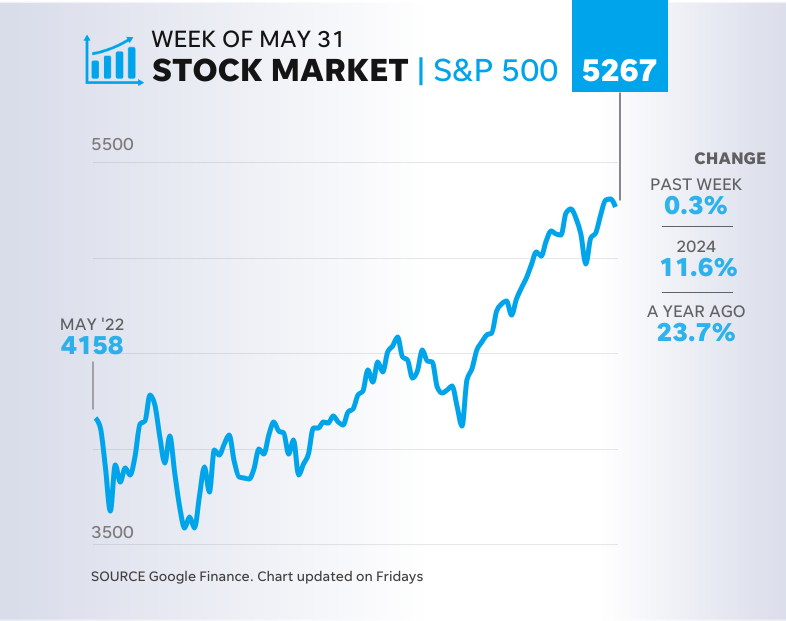With popularity surging, are mutual funds better deals for investors?
This year marks a significant milestone in financial circles: the 100th anniversary of the mutual fund.
These versatile investments have made it much easier and economical for Americans, especially those in the middle class, to invest in stocks, bonds, real estate, commodities, foreign markets and other areas.
They have stood the test of time, navigating recessions, wars and other disruptions. They have become mainstays, especially in retirement accounts, since the unveiling of the first fund, the Massachusetts Investors Trust in 1924.
“Mutual funds have played a pivotal role in democratizing investing, making it possible for 116 million Americans to participate in financial markets,” said Sean Collins, chief economist at the Investment Company Institute, the fund industry trade group, in a statement. “The growth and evolution of mutual funds over the past century is a testament to their enduring appeal and the trust investors place in them.”
Looking for a financial adviser? We rank the top firms.
How prevalent are mutual funds?
If you’re a middle-class investor, you probably own one or several funds.
More than 71 million households, or 54% of the total, have at least one, according to the institute, which tracks considerable data on the industry in its 2024 Fact Book, at icifactbook.org. Retirement accounts, especially 401(k) programs, are a common way for younger investors to gain familiarity. A typical 401(k) plan might offer a dozen or so choices. Of fund-owning households, the average stake is $125,000 spread across three choices.
Alan Norris, a Phoenix certified financial planner and accredited investment fiduciary agreed that the markets have become more accessible. "They opened up a way for (middle America) to take advantage of a wide array of investments."
They also exert a significant impact on the financial markets. Funds own about 33% of U.S. stocks, 22% of American and foreign corporate bonds and 27% of municipal bonds, according to the institute. Funds pool the relatively small-dollar investments from millions of people to make these purchases
Are funds popular in other countries too?
The fund industry is global, but the popularity of these investments isn't as pronounced in most foreign nations as it is in the U.S.
Americans, for example, have nearly twice as much money invested in mutual funds compared to their holdings of bank deposit accounts and currencies, but in Japan, the proportion is 53 to 5 in the other direction. Citizens of the European Union hold about three times as much in bank deposit accounts and currencies as in funds.
Americans owned $33.6 trillion in fund assets at the end of 2023, compared to $35.3 trillion owned by the citizens of all other countries combined. Households, meaning individual investors as opposed to companies or institutions, hold 88% of U.S. fund assets.

Have mutual funds become better deals?
Generally, yes.
The most telling evidence of that is the significant decline in investor-borne costs. The vast majority of funds today are sold without commissions or loads that go to brokers.
In decades past, it was common for funds to charge as much as 8.5% off the top, but no-load funds have become the norm. About 92% of long-term funds are sold today without a sales load or a related fee known as the 12b-1 charge. That’s double the 46% share in 2000.
Also, the ongoing expenses levied by fund companies to pay their portfolio managers, oversee shareholder services and the like are also dropping.
In 2000, the typical expense on a stock fund was 0.99%, or about $9.90 for each $1,000 investment. Today, it’s 0.42% or $4.20 for each $1,000. Bond funds have seen a similar decrease, from 0.76% in 2000 to 0.37% last year. As funds have become bigger and more competitive, that has resulted in lower costs for investors, Norris said.
The numbers above are for regular or "open-end" funds. Another type called ETFs, or exchange-traded funds, pinch pennies even further. The typical stock ETF charged 0.15% in 2023, and the typical bond ETF was at 0.11%. ETF costs are lower, partly because they tend not to be actively managed to the extent regular mutual funds are.
Another category called index funds, which can be regular funds or ETFs, also tend to be inexpensive to own. They buy and hold the same stocks as found in market indexes such as the Standard & Poor’s 500 or S&P 500, with reduced trading and management costs.
Are mutual funds risky?
Yes, in terms of subjecting investors to possible losses.
When stocks and bonds are declining in price, the mutual funds that own them won’t be far behind. However, a fund might own dozens, hundreds, or even thousands of stocks or bonds, and this diversification can greatly mitigate some risks. That is, one or even a few corporate failures won’t bring down an entire fund.
Money market funds, another category, don’t carry deposit insurance like bank accounts. But even here, the safety record is nearly perfect. Money funds typically hold short-term debt issued by corporations, banks, the U.S. Treasury, or various state and city governments. The risks are lessened because the IOUs the funds own tend to be of high credit quality with very short-term maturities, with less time for issuers to get into trouble.
The fund industry has thrived for a century without any direct backstop from the federal government, including for money funds. In an era where everyone else seems to look to Uncle Sam for help, that might be the industry's greatest achievement.
Reach the writer at russ.wiles@arizonarepublic.com.
This article originally appeared on Arizona Republic: Mutual funds anniversary marks 100 years of versatile investments

 Yahoo Finance
Yahoo Finance 